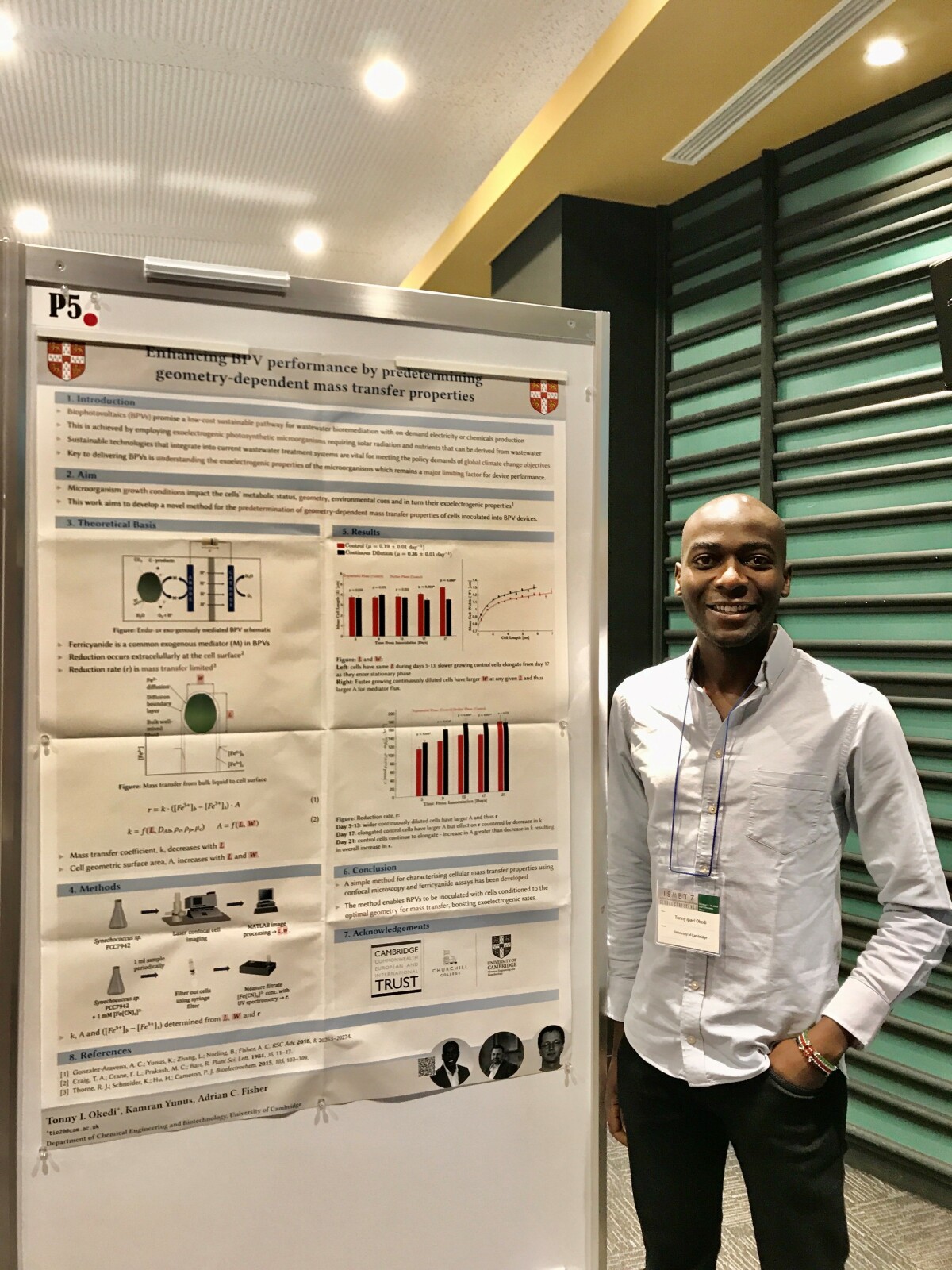International Society of Microbial Electrochemistry and Technology (ISMET) conference highlights need for greater engagement with African researchers

Written by Tonny I Okedi, C-A Scholar, Department of Chemical Engineering and Biotechnology, University of Cambridge
This October, I headed to the island of Okinawa, Japan, for the 7th biennial conference of the International Society of Microbial Electrochemistry and Technology (ISMET). ISMET aims to link researchers studying the complex interactions of microorganisms with extracellular electron acceptors and developing novel ways to use them in sustainable and scalable technologies.
Microbial electrochemical technologies have been demonstrated for clean electricity generation, chemicals production, wastewater treatment, as well as a combination of these. In example are ‘living’ solar cells or biophotovoltaics (BPVs). BPVs using (micro)algae can be employed to remove troublesome phosphates and nitrates from wastewater, while simultaneously generating low cost electricity from just sunlight, water and carbon dioxide in air.
At the conference, I presented my first year Ph.D. work on improving the performance of BPVs by controlling the nutrients available to the microorganisms. In addition, I attended a 1.5-day skills workshop aimed at early career researchers working in the field.
One glaring observation at a conference attended by 200+ researchers from across the world, was the lack of representation from African universities. Not a single talk or poster.
While hurdles such as visas or lack of funds for travel may have played a role, a review of the society’s membership database revealed that less than 1.2% of members are affiliated to an African institution[1]. This suggests that indeed, there is little research activity in this domain on the continent. On a positive note, this has not slipped unnoticed to the current ISMET leadership who are actively seeking to engage with African researchers working in this field.
While on a macro level the membership statistics were not all that surprising (less than 1% of global research output is from Africa), it was a jolt to see the lack of activity on the continent in a research area with potential outputs that are particularly applicable to the African context.
With up to 600 million people still lacking electricity, the need for low cost, low carbon, and decentralised power generation technologies is critical. Furthermore, clean energy intersects with many other developmental goals including access to clean water, sustainable agriculture and even inclusive finance (leased power systems combined with mobile money have enabled previously unbanked citizens to obtain credit scores).
Microbial electrochemical power technologies fit in neatly into this context:
- Low cost: they have the potential to be significantly cheaper than contemporary clean power technologies since they do not require specialty materials (such as high purity semiconductors in traditional solar PV) or large quantities of precious metals (such as platinum in hydrogen fuel cells).
- Decentralised: patchy grid coverage and scarce capital amongst African utilities means that off-grid solutions are critical for wide-spread electrification. In addition, biological organisms have the ability to store carbon products - a promising route to energy storage.
- Integration to wastewater treatment: replicating the large-scale water treatment facilities of wealthier economies is impractical in many African situations. Microbial power technologies can be retrofit into existing infrastructure such as wastewater streams from agri-processing plants or public toilets, from which microorganisms can derive nutrients for growth while remediating the streams and generating green power.
A lot of research is still required to make this a reality. From screening for microorganisms with high electron donation capacity in Africa’s vast and diverse ecosystems, to developing business models for the commercialisation of these technologies in bustling metropolises such as Lagos to the rural villages of Lesotho. Research output from African universities is key to achieving local success.
There are, without a doubt, barriers to STEM research on the continent and microbial electrochemistry is no exception. However, for those already in the field or those looking to enter, seeking collaborations through programs such as Cambridge Africa is a good way to bridge knowledge or technological gaps that may exist.
[1] As of Nov. 1, 2019

